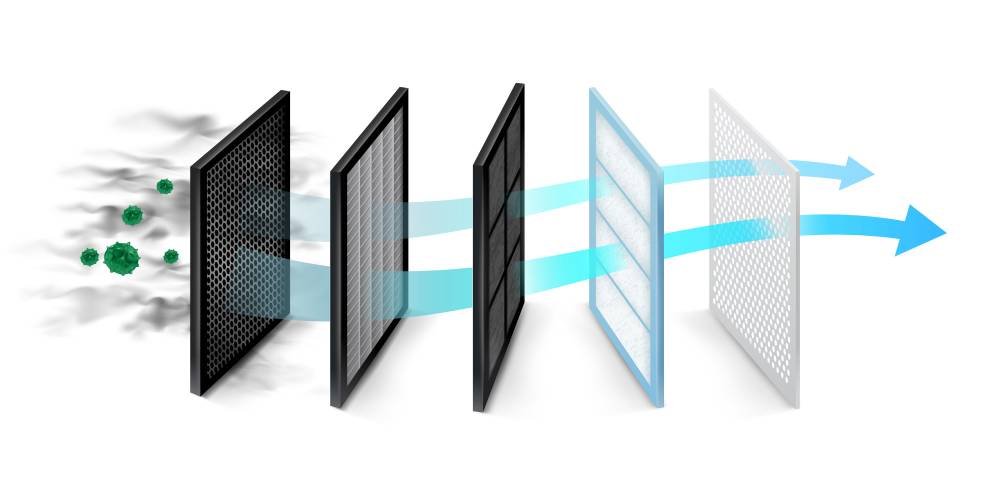Last Updated on 3 years ago by Nicky Johnson
An air filter’s minimum efficiency is reported as its MERV rating. This classification was established by Standard 52.2: Method of Testing General Ventilation Air-Cleaning Devices for Removal Efficiency by Particle Size, developed by the American Society of Heating, Refrigerating, and Air Conditioning Engineers (ASHRAE).

Learning More About MERV 8 and its Efficiency in Your Home
Blog Contents
To choose the best effective filter for your home or business, you can use the Minimum Efficiency Reporting Value (MERV) rating to compare different filters. Amongst consumers in the United States, the MERV 8 filter has established itself as the standard. The question is, why is it the case? In addition, how can you make the most of MERV ratings while shopping for a filter?
Explanation of the MERV Scale and How it Works
Filters with a MERV 8 rating are widespread in the United States, and you can see why by learning how MERV ratings operate. As part of their continual effort to improve upon their initial filter testing standard from 1968, ASHRAE developed the MERV system in 1987. The ability of an air filter to capture particles in each size range is the basis for its MERV rating.
There are a total of 16 MERV ratings, ranging from 1 to 16; the National Air Filtration Association reports that as the number of ratings improves, so does the tested filter’s efficiency. Twelve different particle size ranges are used to evaluate filters, the lowest of which is around 0.3 micrometers and the largest around 10 micrometers.
A micrometer, sometimes spelled micron, is one-millionth of a meter and is a valuable reference point for comparing these measurements to anything else. Some of these particles are so small that they can only be seen with a microscope; for comparison, a human hair is roughly 75 to 100 microns in diameter.
Measuring the number of particles before and after an air filter establishes its MERV rating. Beginning with a filter that is completely free of dust and then adding a unique ASHRAE test dust at regular intervals for five more measurement cycles, scientists count particles over 12 distinct ranges of particle size throughout six testing intervals.
The filter’s effect on the particle density in the test duct is measured both before and after it has been filtered. The MERV rating of an air filter is determined using prescribed calculations, as detailed in the standard.
How Efficient and Adequate Is a MERV 8 Filter?
Due to its all-around usefulness, MERV 8 filters are widely used, despite the popular misconception that their low price comes at the expense of their inferior performance. They are cheap and effective at cleaning the air in a house, better than most other options. Not surprisingly, our best-selling items are MERV 8 filters.
We inform our clients that MERV 8 means high-quality service at an affordable price whenever we get the question, “What does MERV 8 mean?” A MERV 8 filter is effective in capturing and blocking the following airborne particles:
Given these characteristics, a MERV 8 filter is believed to be more effective than lower-rated filters. But does it filter out enough unwanted particles? As a rule, a MERV 8 filter will do the trick. A higher MERV rating is recommended, however, if you have concerns about outdoor air pollution, family members with respiratory disorders, or pets in the home.
What Does the MERV Rating Mean for Filters?
The MERV rating is marked on all air filters. By looking at its MERV rating, you may learn how well an air filter removes particles of a given size range. It alters the kinds of air contaminants trapped by the air filter.
Guidelines for Choosing an Air Filter
Knowing the air quality in your house or office is the most crucial step in choosing the right air filter for your needs. Your first step in determining what contaminants you need to eliminate is to figure out what might affect your air quality. Determine the air contaminants you’re most concerned about, and then replace or service your filter as directed by the manufacturer.
Keep in mind that a MERV 8 air filter, while effective in removing most particles, nonetheless requires regular replacement to keep operating at peak efficiency. The HVAC system in a home would need to be modified to accommodate the higher efficiency filters used in commercial buildings (with a MERV rating of 13 or above).







